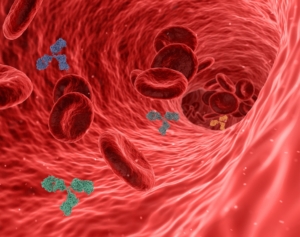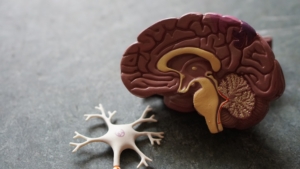Morgellons and Brain Fog
You just walked into the kitchen but can’t remember what you needed here.
Or maybe the words you need in a meaningful conversation are at the tip of your tongue, but you can’t quite place them.
While this is an occasional annoyance at best for most people, forgetfulness is an everyday struggle for Morgellons patients. Patients frequently complain about being unable to concentrate on simple tasks or remember important details to the extent that their job performance and home life are severely impacted.
This sort of chronic cognitive impairment is often referred to as “brain fog,” a term used to describe a group of symptoms that affect cognitive function, including:
- Memory
- Concentration
- Ability to think clearly
- Irritability
- Difficulty with decision making
What causes these frustrating symptoms?
Well, chronic inflammation paired with a chronic infection could be to blame.
Chronic inflammation
Studies have found that an underlying bacterial infection may be responsible for Morgellons disease. Borrelia burgdorferi, a spirochetal bacteria, has been found embedded in skin tissues and fluid samples taken from patients experiencing Morgellons hallmarks like slow-healing open sores and embedded skin fibers.

Inflammatory signals in the bloodstream.
Untreated infections trigger an inflammatory response—the body’s natural response to an illness or injury—and chronic symptoms develop if that type of inflammation lasts for weeks, months, or even years.
Chronic inflammation may also cause changes in brain chemistry by affecting neurotransmitters like serotonin, dopamine, and norepinephrine levels. Disrupting normal brain function in this way can cause mood changes and other cognitive symptoms to compound and become worse.
Many studies have also shown chronic inflammation hurts brain function by causing damage to the blood-brain barrier. This protective layer of cells helps keep harmful substances from entering the brain. When this barrier is damaged, toxins, inflammatory molecules, and even infecting germs can enter the brain, further damaging brain cells.
Chronic infection
Chronic infections may damage the brain and cause dysfunction in several ways:
- Localized inflammation
- Immune activation
- Direct infection of brain cells
Inflammation is a critical tool the body uses to fight off infections. While this natural response helps us heal from cuts, broken bones, and the common cold, long-term inflammation is more harmful than helpful.
As discussed, chronic inflammation can damage brain function by disrupting the blood-brain barrier and allowing infectious bacteria such as Borrelia burgdorferi to infect brain cells directly.
Once in the brain, infecting pathogens can trigger a localized immune response, activating the immune system to fight off the invading spirochetes.
While inflammation is a vital response that triggers healing, it’s also harmful in neural tissues.
The inflammatory signals the body uses to communicate with immune system cells and tissues cause swelling as blood vessels and surrounding tissues become more permeable, allowing extra fluids to enter the injured area.
Swelling is helpful when supporting a sprained ankle. But it’s dangerous in the brain, where swelling has nowhere to go and often results in encephalitis (swelling of the brain) or neuroinflammation (swelling of the nervous tissues).
 Unfortunately, encephalitis or swelling of the brain may cause only mild flu-like symptoms—if it causes any symptoms at all, making it difficult to detect. However, its impacts can be felt by patients who experience memory issues and struggle to focus on daily tasks.
Unfortunately, encephalitis or swelling of the brain may cause only mild flu-like symptoms—if it causes any symptoms at all, making it difficult to detect. However, its impacts can be felt by patients who experience memory issues and struggle to focus on daily tasks.
All of this compounds the already challenging range of symptoms Morgellons patients face. Many cognitive symptoms may be related to the spirochetal infection of the brain and the added stress and anxiety that can result from living with a chronic illness.
While antibiotic treatments may help alleviate most symptoms, cognitive functions may not return to the level the patient experienced before getting sick, leading to permanent impairment.
There’s still much we don’t understand about how underlying infections, inflammation, and other factors contribute to the debilitating symptoms such as brain fog that severely impact the quality of life Morgellons patients face. Please consider donating to the Charles E. Holman Morgellons Disease Foundation to help us fund further research that will alleviate the patient’s suffering.

